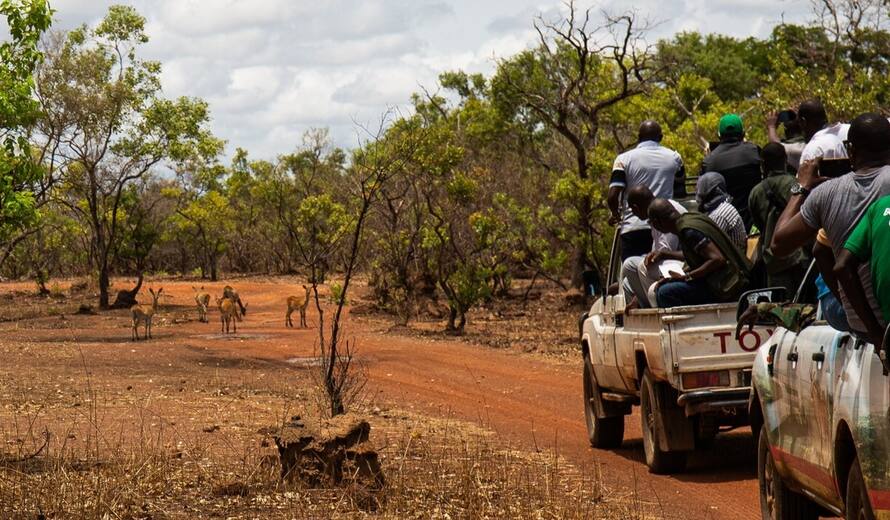
News
Site Managers from across West Africa mobilise to safeguard UNESCO World Heritage sites in danger
Site managers from Côte d’Ivoire, Guinea, Mali, Niger, and Senegal, gathered from 12 to 16 June 2023 in Toubacouta in the Saloum Delta (Senegal) to reaffirm their strong commitment to work towards the Desired State of Conservation of six West African sites to remove them from the List of World Heritage in Danger.
This important workshop was hosted by the Government of Senegal, and co-organized by UNESCO, the African World Heritage Fund (AWHF) and the Advisory Bodies to the 1972 Convention (ICCROM, ICOMOS, IUCN).
The objectives of this five-day workshop were to support the development of the Desired State of Conservation for the removal of sites from the List of World Heritage in Danger (DSOCR) and the corrective measures, assist in mobilizing technical and financial partners and define a roadmap for the implementation of actions for the removal of six African UNESCO World Heritage sites (three natural and three cultural) from the List of World Heritage in Danger in West Africa.
Speakers and panellists, through their interventions, highlighted the role of south-south collaboration in working together to ensure the sustainable and effective conservation of these sites, free from the threats that still endanger them. They also called for every possible effort to be made, including stronger mobilisation of the international community, to provide targeted support to the concerned African States Parties, so that their endangered sites reach the Desired State of Conservation.
After an engaging opening speech by the Deputy Prefect of Toubacouta, Mr Hamath Saiko Ly, who urged the various stakeholders present to act in synergy to remove the various UNESCO World Heritage sites from the Danger List, the Chief of the Africa Unit of the World Heritage Centre, Mr Muhammad Juma, encouraged the participants to produce a clear roadmap and concrete actions to support the removal of the sites from the List of World Heritage in Danger, which was established to identify and address threats to the world's most significant locations and contains 15 African sites.
As outlined in the ambitious objectives set out in UNESCO's Priority Africa strategy for 2022-2029, one of its primary goals is to provide specialised assistance to African States Parties whose UNESCO World Heritage sites are on the List of World Heritage in Danger. This targeted support aims to help these sites achieve a robust and sustainable state of conservation to facilitate their removal from that list.
Participants at the workshop's opening in Toubacouta © UNESCO/ Théo Somda
Several speakers took the floor and shared insights, experiences, and good practices. Sharing the experience of the Comoé National Park in Côte d'Ivoire, which was removed from the List of World Heritage in Danger in 2017, the representative of Comoé National Park in Cote d’Ivoire, Mr Alex Beda, stressed the need to focus on developing and implementing strong action plans to advance the Desired State of Conservation, as well as the need to forge partnerships with the private sector. He also advised involving local communities to actively participate in the preservation and conservation of the sites.
A highlight of the meeting was the visit to Niokolo-Koba National Park on 15 June where the participants had the opportunity to meet local actors and stakeholders, in particular Park guards, tour guides, the women's association, etc. to learn first-hand about their challenges and expectations with regard to this site that was inscribed on the World Heritage List in 1981, and on the List of World Heritage in Danger since 2007.
This workshop was made possible with the support of the Government of China and the Government of Norway.




